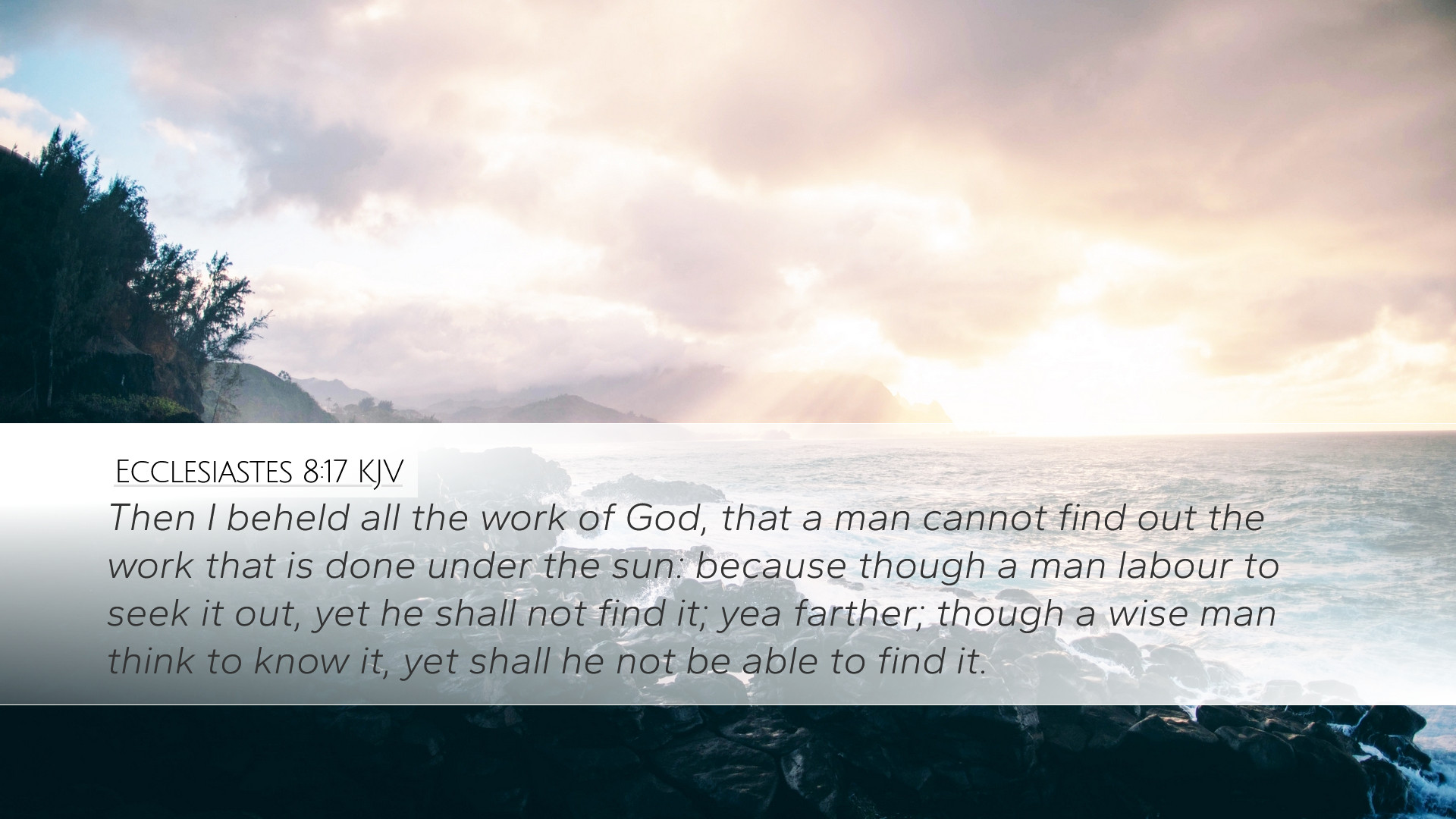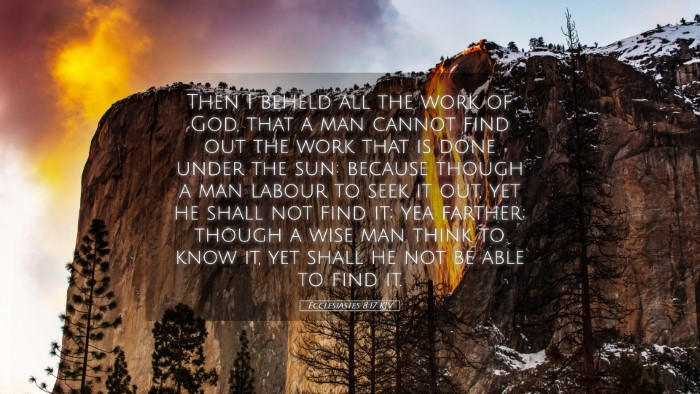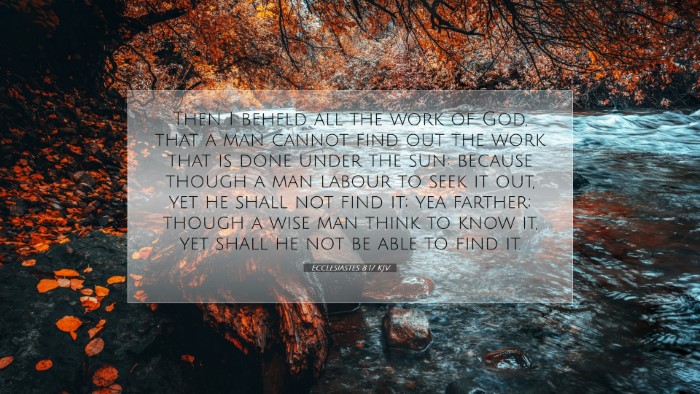Commentary on Ecclesiastes 8:17
Verse Reference: Ecclesiastes 8:17
“Then I saw all the work of God, that a man cannot find out the work that is done under the sun: because though a man labor to seek it out, yet he shall not find it; yea further; though a wise man think to know it, yet shall he not be able to find it.”
Introduction
The Book of Ecclesiastes offers profound insights into the human condition and the limitations of human understanding. In Ecclesiastes 8:17, the Preacher reflects on the incomprehensibility of God's works. This commentary synthesizes insights from public domain commentaries to illuminate this verse's depth, relevance, and application for contemporary audiences.
Verse Analysis
Ecclesiastes 8:17 highlights the limitations inherent in human wisdom and exploration. It emphasizes the contrast between man's aspirations to understand the divine workings of the world and the ultimate elusiveness of God's full plan.
Key Themes
- The Work of God: The emphasis that all human efforts to grasp God’s work are futile.
- The Insufficiency of Human Wisdom: A wise person remains unable to fully comprehend God’s purpose.
- Divine Mystery: There are elements of existence that remain shrouded in mystery, reaffirming the necessity of faith.
Commentary Insights
From Matthew Henry
Henry states that man cannot discover all of God's works. His commentary emphasizes the limitations faced by even the wisest among men as they endeavor to comprehend the complexities of the universe. He notes significantly that “though a wise man think to know it, yet shall he not be able to find it,” indicating the humbling reality that our knowledge is inherently limited. This intricacy should induce a sense of awe about God's infinite wisdom.
From Albert Barnes
Barnes focuses on the aspect of human endeavor to seek knowledge and the divine. He posits that the verse communicates a critical lesson: “the work which is done under the sun cannot be fully understood.” He elaborates that this should lead individuals to recognise their reliance on faith rather than mere rationality. He also ties this thought into the overarching theme of life's vanity—man's pursuits can often seem futile in light of the bigger picture that only God comprehends.
From Adam Clarke
Clarke draws attention to the tirelessness of human effort and curiosity. He underscores that while seeking knowledge is commendable, it often leads to frustration when confronted with the limitless scope of divine affairs. Clarke invokes the idea that while there are parts of God's work visible to man, many remain hidden, which necessitates humility and the acknowledgment of one's place in the created order.
Theological Reflection
This verse invites theological reflection on several levels. Pastors and theologians can delve into discussions about the nature of divine sovereignty and human limitation. The text provides a platform for a rich exploration of faith’s role amidst uncertainty. In congregational settings, it can serve as an encouragement for believers to trust in God's plan when faced with life's mysteries.
Practical Application
For students and scholars, this passage serves as a reminder of the importance of humility in the pursuit of knowledge. It challenges them to recognize the divine mystery governing existence and encourages the pursuit of wisdom through spiritual understanding rather than mere intellectual exercises. Wisely applying this understanding fosters greater appreciation for faith and trust in God amidst life's uncertainties.
Concluding Thoughts
Ecclesiastes 8:17 stands as a testament to the complexity and beauty of God's creation and the limitations of human understanding. Whether it be through meticulous study or practical ministry, the essence of this verse is a call to navigate the balance between knowledge and faith. In every endeavor to discern God's works, there lies an invitation to embrace mystery, lean into faith, and acknowledge that while we may not understand everything, we can trust the One who knows all.


